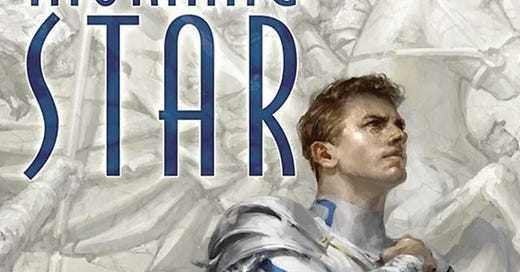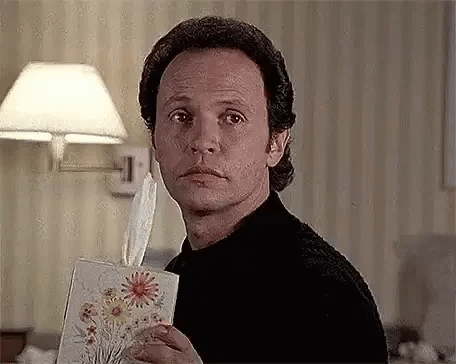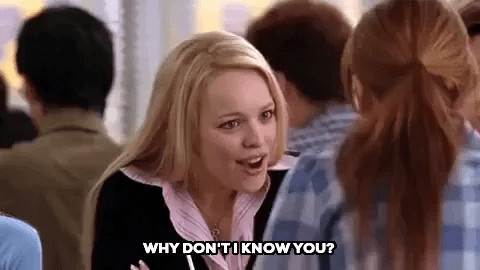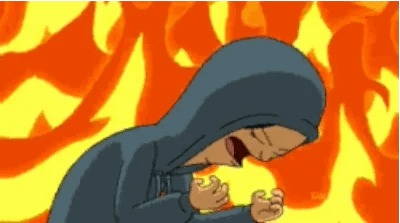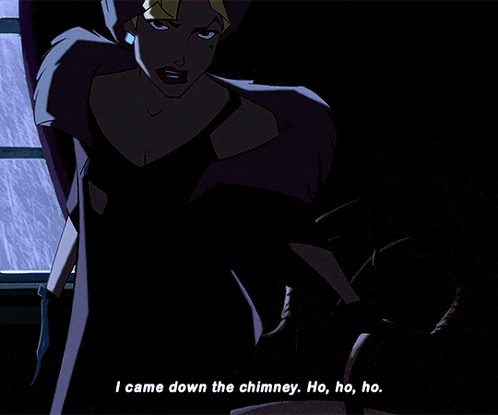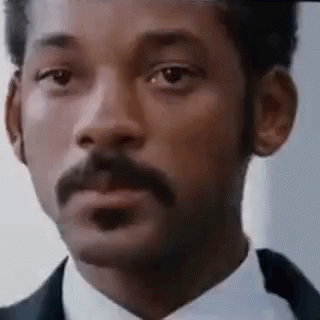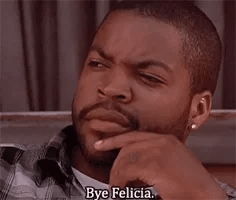A Retrospective of Morning Star by Pierce Brown
It's rife with spoilers right off the bat; you've been warned.
“To sister, who taught me to listen”
“Not yet, Allmother. Not yet.”
Hello, welcome.
If you’re new here, take a seat. Have a tissue.
Where to begin? I have a lot of notes.
It’s been a year since I finished Morning Star. I reread it for this review, thinking that maybe a second read would soften the punches. It didn’t, but it was a nice thought. Even after a third read, it hits like a freight train.
I can’t think of another book that has left such a resounding mark on me. A book where I can flip to a page my fingers remember and be brought to tears with just a few little words. There is so much woven into the fabric of this story that, well, hits different. Hits home.
Morning Star does not stand alone in media that hits different for me, but it is on a short list. I revisit them for the same reasons I revisit the third installment of the Red Rising series, each time with a new sticky tab or a word I didn’t notice before; they are stories that are cathartic, perhaps not always in a happy ending kind of way, but in a ‘that was a productive therapy session’ way.
Brown does what every good writer does; he has pulled from a thousand stories, plucking pieces, names, and themes that we are familiar with (and some that we are not—hi, Trimalchio1) and placing them on a new stage. He makes other, direct references, not so camouflaged in his space-opera of Colors, which we’ll unpack a little bit (the opening quote is a hint), but I’m also not here to write a book about another book.
If you’re here for a verdict on whether it is good or not: yes. It is. Go read it or listen to it and come back when you’re ready/recovered.
A disclaimer: normally, I write these reviews after maybe one or two days of finishing2. It’s probably been a month since I’ve done my complete re-read of Morning Star, so things are not going to be as fresh. We are going off what has stuck around and haunted my brain.
Speaking of ghosts.
Darrow is having his own retrospective. Throughout the book, there are specters of the Institute, of his former victories, allies, his former self. And his failures. All of his triumphs are knee-capped by loss and devastation. It is relentless. Tissue, please.
The first seven chapters of the book are a persistent loop of devastation chasing success—breaking out of the table, surrounded by the people who orchestrated his downfall, looking like a shell of himself. His rescue, hearing Sevro, finding Victra, the EMP scene—
—get a healthy scoop of grim reality.
A hand touches mine. A boy lying beside me. Eyes wide. Armor blackened. The skin of his cheeks is young and smooth beneath the soot and blood. His mouth not yet creased by smiles. His breaths come shorter, quicker. He mouths my name.
And he’s gone.
Darrow is arrogant, prejudiced, reckless. And he’s broken. He keeps grasping for a piece of himself during his escape, but his mind is weaving between the present and the past. He isn’t fully there.
Snowflakes gather atop the black rain gear she wears. Fluttering down like the ash that fell when Cassius, Sevro, and I burned Minerva’s citadel and stole their cook. “We’ll be fine,” I tell her. “We’ll make it.”
Even his promise to Victra seems like he is reaching blindly across a chasm to someone else who is also not fully present at this moment. There’s a clear link between Victra and Darrow––not a romantic one, but a narrative one. They are mirrors, kind of like with Darrow and Cassius3. Follow me to the Victra-appreciation corner real quick.
I talked about Sevro in my review of Golden Son. He and Victra have a special connection, and his love for her opens up something vulnerable and raw (insert that’s what she said here). She retreats from him, hurts him in the process of blaming herself and also him, because she thinks she is poison because of her family. It’s her entire world view. When Darrow tells her that Mustang is coming with them to the spires, Victra assumes that Mustang’s allegiance to Darrow is for self-preservation rather than a moral duty:
The bitterness in her voice is acute. —
—wait, we should have a visual.
That’s better. Continue.
The bitterness in her voice is acute. “Here are my thoughts. You can’t trust her. Look at her brother. Her father. Greed is in her blood. Of course she would ally with us. It fits her aims.” I watch Mustang as Victra speaks. “She needs us because she’s losing her war. But what happens when we give her what she needs? What happens when we’re in her way? Will you be able to put her down? Will you be able to pull the trigger?”
And then Darrow lies, unconvincingly, and it’s adorable. But who is Victra actually talking about? If you said, ‘this is exactly what people say about the Julii’, you are correct. Therefore, Victra is mad projecting. The fact that she is pushing Darrow to be ready to put Mustang down says a lot about her own faith in herself to be better.
Let’s talk about sibling trauma—and family trauma—a rampant theme in this story.
“Victra…” I call after her like there’s something to say.
She turns back to me, eyes red, not with rage, but with a fathomless sadness. Knuckles frayed open. “I used to braid her hair,” she says forcefully. “I don’t know why she’s like this. Why I am.”
This scene.4 To paraphrase Darrow, the ‘eerie, silent violence’ and the honesty and heartbreak that follows. It’s a gut-punch. I can’t say I’ve been in Victra’s exact situation, but I understand feeling that ache, knowing that your sibling—someone you love so deeply, that you have a long, messy history, a shared childhood, shared trauma—has something intrinsically wrong with them, that only they can fix, but they continue on hurting.
Victra thinks she’s a monster. She says as much to Sevro, that she has poison in her veins. And admittedly, if you didn’t know better, you’d think she is a monster after what she does to Antonia. Her mother was arguably a monster, her sister is inarguably a monster, ergo, she’s a monster, too. It’s a very easy path of logic, and it's a logic that many people with abusive families fall into, and abusive family members and partners feed on it. They know your buttons and they push them without remorse, because it is about self-preservation above all. Victra was caught in the classic narcissist lose-lose scenario, but at the very least Antonia gets what’s coming to her. It doesn’t feel good, though.
Change is work. Change is painful. Change is what the entire war of the Colors is about. It is necessary. It is scary. Victra finds comfort in this sad reality that she is a broken, poisonous being that is not worthy of love because it is what she knows; she fights for it, resists the people who tell her otherwise, even though it hurts her, just like the Golds who resist the idea of a world where they exist among the Colors as equals rather than titans—hell, Roque kills himself before comprehending such a dream, even though if he tried, he’d probably get there, because with that dream is the death of what he knows and loves. Victra has to ask herself if she wants to continue as she has been in the lonely comfort of the knowable, or will she step into the unknown to seek something more?
Queue Sevro and the Darrow-playbook of mad-fucking ideas.
“Cassius au Bellona killed my father…” He stands over the man, swallowing before looking back up. “But I forgive him. Why? Because he was protecting the world he knew, because he was afraid.”
Victra pushes her way to the front of the circle, watching Sevro who speaks now as if it was meant for her and her alone. “We are the new age. The new world. And if we’re to show the way, then we better damn well make it a better one. I am Sevro au Barca. And I am no longer afraid.”
(This is why we write with themes. Take notes, Benioff.)
Here is the heart. And of course, it is a mirror, proof that Sevro was watching and listening. Sevro is speaking to the crowd and Victra, but he’s also just saved the last hope of his friend, Ragnar. Sefi must lead the Obsidians in her brother’s stead, but she is a wild card. They have to have faith in her, teach her, and trust in Ragnar’s love for her.
Chapter 30: The Quiet
If there’s any question as to why it took me so long to finish this review, The Quiet is your answer.
Here is what I believe Brown understands above all else, above themes, nesting, plots—he understands pain and sacrifice in the pursuit of changing his characters. The Quiet is for Darrow, Mustang, and Holiday5. Their success with the Obsidian hinges on the survival of Ragnar, yet they observe the very real possibility that they could eliminate a weakened enemy. Seems like two birds with one stone, and as a reader (Mustang was an excellent surrogate for us; she is the genius skeptic, so her going along with it lulled me into a state of security), I was pulled into this idea. Little did we know that when Darrow asked Ragnar if he could kill Aja, Ragnar underestimated his opponent.
And why wouldn’t he? Darrow believed him. We have seen Ragnar go through Golds as if they were card-board cutouts. Aja, however, is a force of nature. To stand a chance, it would’ve taken all of them. This is not a mistake Darrow repeats. Only because it cost him a friend.
A friend, who in his last moments, does his best to weave together the two people who have been the most important to him, and to give them advice.
“I will give Eo your love. I will make a house for you in the Vale of your fathers. It will be beside my own. Join me there when you die.” He grins. “But I am no builder. So take your time. We will wait.”
There’s this really obscure movie that was released in 2000 called Gladiator (/s) starring Russell Crowe, Connie Nielson, and Joaquin Phoenix and directed by Ridley Scott. It is on my short list of my favorite things of all time. It is a tragedy about a Roman general who, after the murder of his beloved Caesar, stands against his Caesar’s immoral son, Commodus, and faces the ultimate punishment for it. I think one of the reasons I connected with Red Rising was the parallel between Darrow and Gladiator’s main character, Maximus. That anger and vengeance that motivates good people into being something savage. It feels primal and righteous. But Maximus was a man; he was a general, a husband, and a father before all that happens happens. His ending suited his lesson.
Darrow was a boy when he had to pull Eo’s feet; he was a boy in the Institute. He was a fool in Golden Son. In Morning Star, he finally listens. He understands. And now, he can live with those that he loves.
“Live for more.”
As Lorn says in the book, there’s always a bill. The author knows the bill intimately. The bill is weighed against the pain and sacrifice that the characters have suffered. And as I said in the beginning, Darrow’s is relentless. That’s why we had to lose Lorn, Tactus, Quinn, Thistle, Ragnar, and millions of unnamed Reds, Oranges, Blues, Browns, Pinks, Violets, Obsidians, Yellows, Whites, and Golds. Darrow’s bill was steep. He might owe more, but he paid a great deal to get to the end.
Stories that stick with you are special. When they hit home, it means that there’s something there worth exploring more. Go back to it often. And next time you return, bring a notebook.
I have more to say, but I think it’s for another time. As always, thank you for reading. And remember, Ragnar will wait.
Like I said, I am not here to write books about other books. At least, not yet.
Trimalchio was basically the Roman precursor to the Great Gatsby; the story is about a former slave turned successful wine merchant and throws extravagant dinner parties. Very Adrius to step over a way more relevant reference to pull out a completely obscure one
except with Golden Son; I immediately wrote that review in a flurry to get to this book
Thunder and Lightning™
“I used to braid her hair” deserves its own analysis. I could write a whole essay on why every time I read it, I burst into tears, but the tears hinder my ability to write. Please send tips on how to write while weeping. Google has proven useless.
I suppose Cassius too, though his lesson is a decisive arrow through the throat


